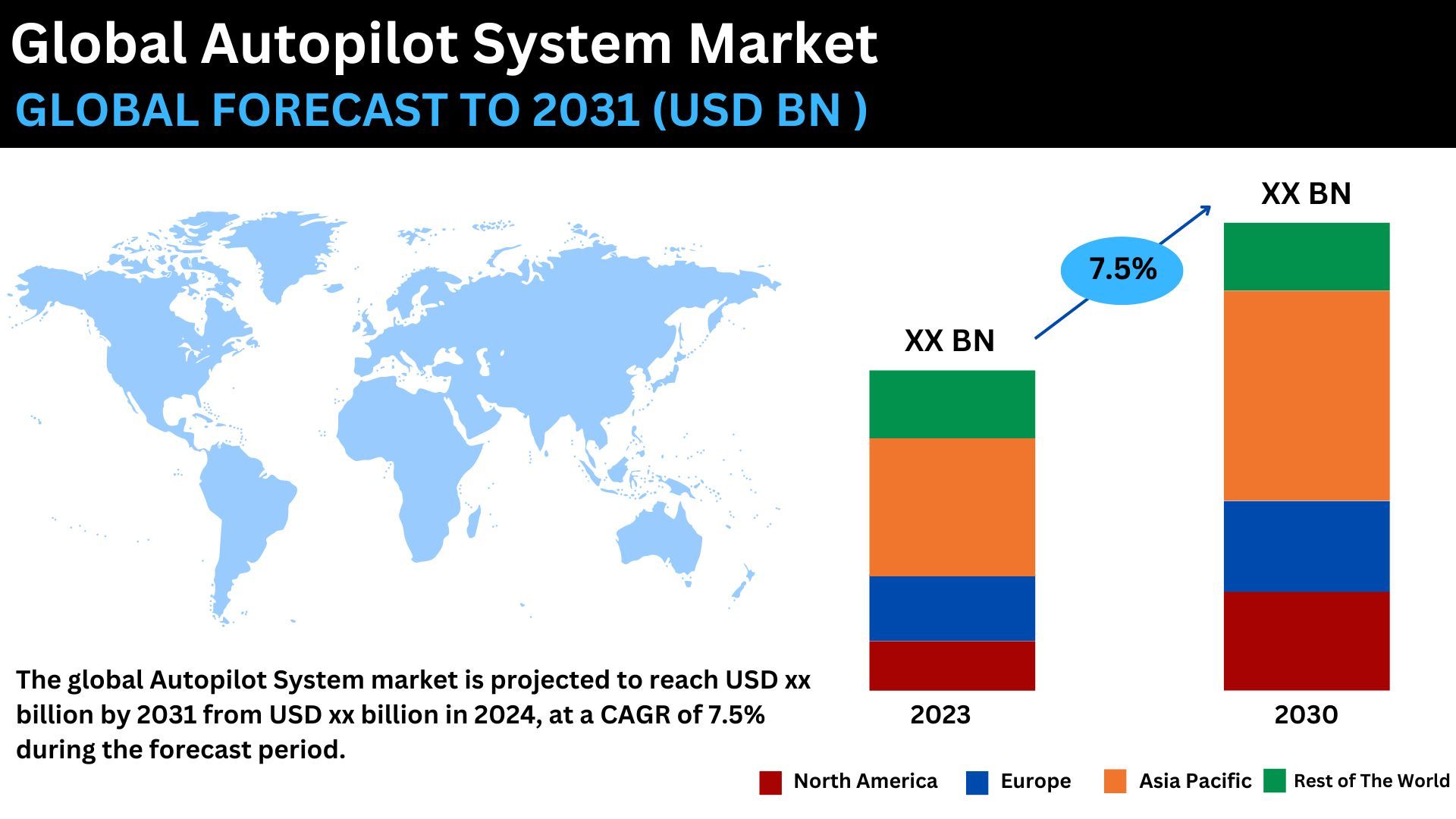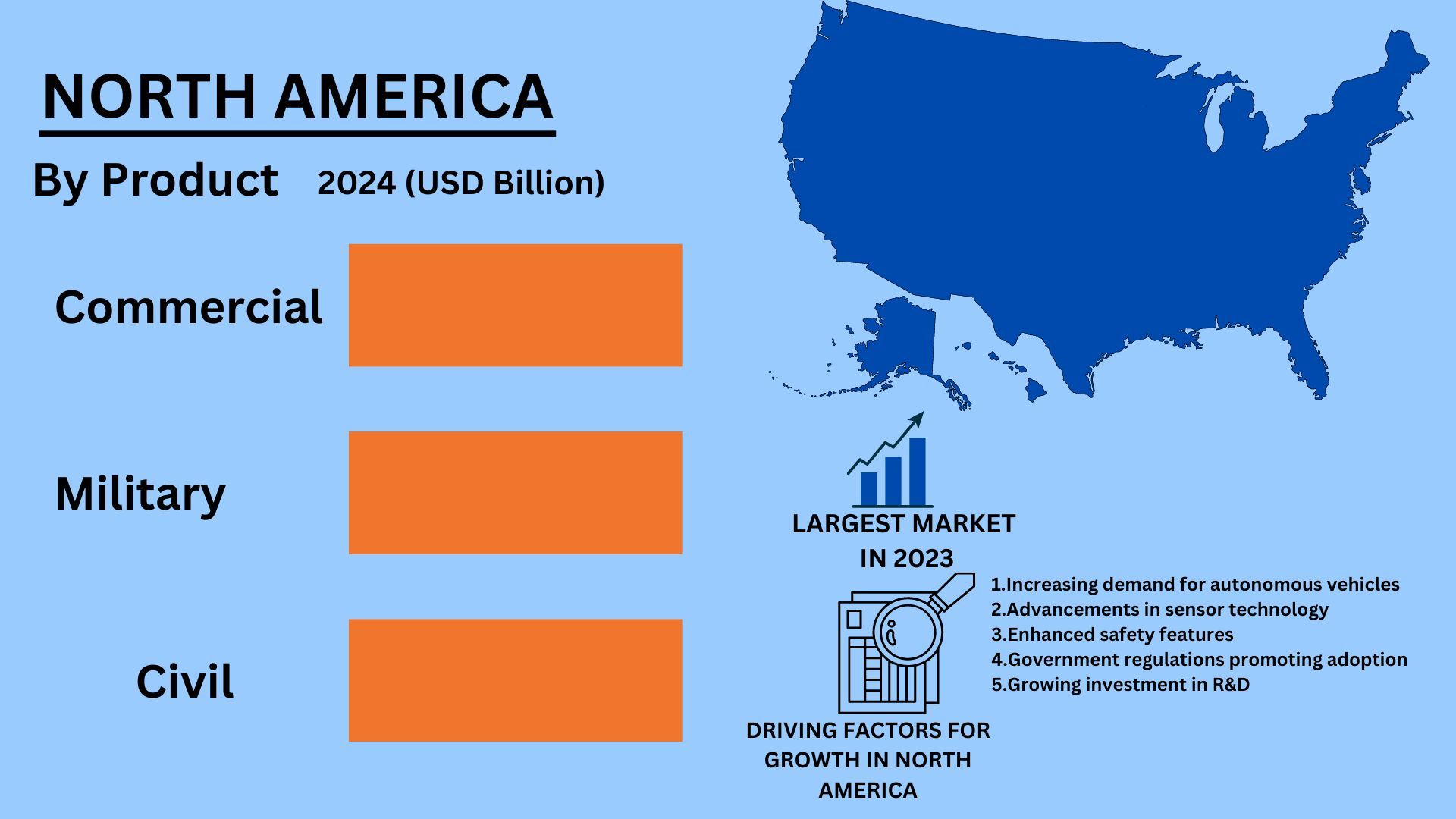Global Autopilot System Market
EMI10103 ID | Aerospace & Defence | March-2024 | 199 PagesThe revenue of the global autopilot system market was projected to reach USD XX billion in 2023, and it is expected to rise at a compound annual growth rate (CAGR) of 7.5% between 2024 and 2031.

The autopilot system market is the industry that includes the development, production, and integration of advanced automation technologies into various vehicles and machinery. Using sensors, actuators, and computer algorithms, autopilot systems automate tasks that are normally performed by human operators—navigation, control, and monitoring. The automotive, aerospace, maritime, and industrial sectors all make extensive use of these technologies to boost output, effectiveness, and security. Important features of autopilot systems include autonomous operating characteristics, collision avoidance, adaptive cruise control, and lane-keeping assistance. Because artificial intelligence and machine learning technologies are being used widely, the market for autopilot systems is growing rapidly. The increasing need for unmanned aerial vehicles (UAVs), autonomous maritime vessels, and autonomous cars in a variety of global applications and industries.
Autopilot System Market Dynamics
Drivers: Growth in the Autopilot System Market is Driven by Increasing Demand for Advanced Driver Assistance Systems (ADAS).
The resolution of moral and ethical quandaries in autonomous driving presents considerable difficulties for those who create autopilot systems. These conundrums include situations in which the car has to make snap decisions that could endanger the lives of occupants, pedestrians, and other road users. Efficient algorithms and strong ethical frameworks are needed to strike a balance between values like utilitarianism, which prioritize the larger good, and concerns for individual rights and moral responsibilities. The development of autonomous driving technology is further complicated by public consensus and regulatory requirements.
Restraints: Legal frameworks and regulatory obstacles Provide Obstacles to the Widespread Use of Autopilot Systems.
Legal regulations and regulatory obstacles make it difficult to deploy autopilot systems widely. To guarantee that safety and liability problems are taken care of, governments and regulatory agencies need to set precise rules and regulations for the operation of autonomous vehicles. Legal frameworks must also change to account for the particular challenges of autonomous driving, such as concerns about who is responsible for malfunctions or accidents. To fully utilize autopilot technology, these obstacles must be removed.
Opportunities: The market for autopilot systems has growth opportunities due to the integration of 5G and IoT technologies.
The market for autopilot systems stands to gain a great deal from the combination of 5G and IoT technology. Optimizing autopilot system performance and efficiency can be achieved by combining the seamless communication and control offered by IoT devices with the high-speed connectivity and data exchange capabilities of 5G. This convergence encourages innovation and market growth in the autopilot system industry by facilitating real-time data processing, better decision-making algorithms, and increased communication between vehicles and infrastructure.
Challenges: For developers of autopilot systems, addressing the moral and ethical quandaries surrounding autonomous driving poses significant challenges.
The moral and ethical quandaries surrounding autonomous driving pose a great deal of difficulty for those who create autopilot systems. They have to deal with issues including how to balance the safety of pedestrians and occupants, deal with accidents that are unavoidable, and design decision-making procedures that are consistent with society norms. To enable the proper development and deployment of autonomous driving technology, careful navigation is needed to strike a balance between ethical issues and technical breakthroughs.

Ecosystem of the Global Autopilot System Market
Some of the leading businesses in this industry are well-known producers and suppliers of autopilot systems. These businesses have been on the market for a while and have a strong global sales and marketing network, as well as a broad product portfolio, organic and inorganic strategies. Embark, TuSimple, Motional, Inc., Tesla, Zoox, Inc., Waymo LLC, Argo AI, Aurora, and others are notable startups.
Autopilot System Market Report Scope:
| Report Metrics | Details |
|---|---|
| Market Size (Years) | 2020–2031 |
| Base Year Considered | 2023 |
| Forecast Period | 2024–2031 |
| Forecast Units | Million/Billion (USD) |
| Segments Covered | By Component, System, Aircraft Type, and Region |
| Geographies Covered | North America, Europe, Asia Pacific, and Rest of the World |
| Companies Covered | Tesla, Zoox, Inc, Waymo LLC, Argo AI, Aurora, Motional, Inc, Pony. ai, Nuro, Inc, Embark, TuSimple, and Others |
